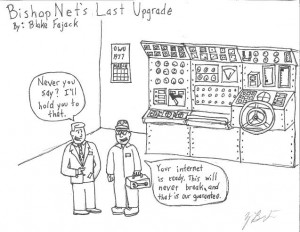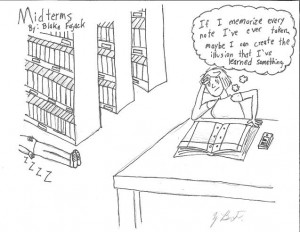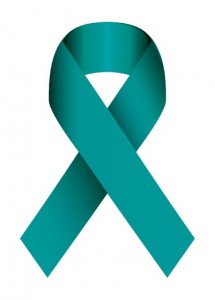

Also, see Soapbox

It came to my attention that Oct. 10 was “Mental Health Day,” which was actually sponsored by the World Health Organization. My social media platforms were littered with people saying how their families and friends had supported them, or them sharing their stories. When I saw these posts, I had mixed feelings. My first thought was how happy I was with the amount of people being so open with their stories. My other thought was why did we need another “day?” I feel like we have “days” for everything, and didn’t understand why having a mental health “day” was necessary.
After some thought, I came to the conclusion as to why I felt so skeptical toward these declarations. I just wasn’t used to the complete transparency people felt with whatever they were dealing with. When I was diagnosed with depression, anxiety and a few other things, I felt like I was suffering in secret. When I told friends, they either didn’t believe me or they treated me like glass. Then I stopped telling people for quite a while. But my time at Ohio Wesleyan encouraged me to be more open with my struggles, because people had an idea of what it was like. They didn’t go through the exact struggles I did, but they were sympathetic toward me. But they didn’t treat me like any less of a person.
Scrolling through my Facebook feed on Oct. 10 was almost surreal; I didn’t realize how many people were suffering in silence. And I was one of them for a long time. I may have scoffed at first when hearing about a “Mental Health Day,” but now I’m ashamed at that reaction. If that day provided an outlet for someone to seek the help they so desperately needed or allowed them to feel comfortable enough to tell their friends, I am not one to judge.
Since my diagnosis, there have been such massive changes in how mental health issues are perceived. Though unfortunately, there’s still a stigma attached, it’s not as taboo as it once was.
People are more open with their struggles, and in turn, encourage others to either confront their issues or be more willing to talk about them.
However, with the normalization of mental illness, I’m afraid people take the terms so cavalierly. For example, someone who is neat and orderly complains they are “so OCD.” No, you’re not. That’s just making light of someone who actually suffers from Obsessive Compulsive Disorder.
Or when people say they’re going to kill themselves over a bad test grade; to me, that’s almost spitting in the face of someone who tried to commit suicide or to someone whose loved one did.
People need to be more careful with their language in order for more people to feel comfortable coming forward with their struggles.
Though I’m incredibly happy about more people coming out with their stories and struggles with mental illness, I hope this isn’t a fad. I hope people are taking this seriously as I am. I also hope that next Oct. 10, or whenever the next Mental Health Day is, that more people will have the courage to talk about their struggles.
Dear Editors,
If you ask students what makes OWU special, many will say the community; the lasting bonds they have formed with people, in and outside the classroom, who have humanized their experience here. And many will say that staff people are a vital part of that community. In addition to keeping the university running in so many crucial ways, staff people have hosted international students for Thanksgiving, served as (official and unofficial) advisors, guided student clubs, ran sound systems for student bands, and offered understanding ears when students needed someone to listen.
Unfortunately, for various reasons, many dedicated staff people recently have had their positions eliminated. And many have been terminated after years of service, without the campus community having had a chance to recognize their contributions or thank them for their service.
Patricio (Pachi) Plazolles is one such staff person who, in his 26 years here, touched many people across the university, but whose position was recently eliminated. For many of us, Patricio’s abrupt departure left a gap in the OWU community. Some of us would like to thank him and recognize the many ways, above and beyond his duties at the Woltemade Center, that he contributed to campus life.
Students and alumni remember Patricio as both a mentor and friend, who invested his time in students and the community. Patricio was the advisor of the OWU Marketing Group (OMG) for the group’s entire existence, said a past president of the group, and he helped many of us to get practical work experience through the group’s projects. He guided us in succeeding academically and professionally, other students and alumni emphasized, but success was not enough; he wanted us to succeed with integrity, excellence, and a sense of service to others. One successful alumna identifies Patricio as the reason why is she is where she is today.
Patricio always knew what to say and how to connect with people, remembers one student.
When he walked around campus, people always approached him as if he were a great friend they hadn’t seen in awhile. Another alumna remembers visiting Patricio’s small homestead farm and remembers how his dreams to better the world inspired her in her sustainability work. A faculty member echoed these views, describing Patricio as one of the most sincere and honest human beings he has met. Patricio’s departure is truly sad and disappointing, they agreed, as Patricio had so many skills and virtues, and he truly represented the Ohio Wesleyan spirit.
Another student identified Patricio as an “incredible role model” and one of the key reasons she majored in economics. I never once saw him give up on a student or a student project, she says.
He is encouraging while also challenging people to do their very best. When she had an idea for TiPit grant to study social entrepreneurship and microfinancing, Patricio was immediately on board, helped her and others to design a workable project, and reached out to friends in Peru to make the project a success. It was a great honor, she said, to travel to his home country with him and see the tremendous respect that his friends, family, and local professors have for him.
Patricio and others who recently have lost their positions here will be missed.
Signed,
Lautaro Cabrera, former president of OMG, Class of 2015
Billy George, Class of 2017
Erika Kazi, Class of 2014
Reilly Reynolds, Class of 2016
Juan Armando Rojas, Associate Professor of Modern Foreign Languages
Sarah Sanders, former vice president of OMG, Class of 2015
Shari Stone-Mediatore, Professor of Philosophy
Michelle Waltz, Class of 2002
Andy Wittenberg, Class of 2013

As the 2016 presidential election approaches, political debates are beginning to heat up. This is expected.
Something that was not expected was one of the wealthiest real estate moguls in the country entering the race. That’s right, I’m talking about Donald Trump.
Trump announced his candidacy for the 2016 election on July 16. Many people believed that his campaign would not last long and that his abrasive personality would force him to drop out. However, it has been three months and not only is Trump leading air-time, but he is also leading the Republican polls by about 11 percent.
Trump has no doubt encountered some bumps in the road. For example, his feud with Fox News’s Megyn Kelly during the first Republican presidential debate. Yet he has only gained more publicity from events like this and it has made him stronger in his campaign.
Regardless of the political party you affiliate yourself with, there is one thing Donald Trump has done in the media. With all the different things going on in the world, many people, mainly millennials, can find themselves bored with politics. Donald Trump has grabbed the attention of many of those who typically turn their heads away from politics.
He’s not the only one that has done this recently. During MTV’s 2015 Video Music Awards on Aug. 30, celebrity rapper Kanye West accepted a Michael Jackson Vanguard Award. During his acceptance speech, he announced his candidacy for the 2020 presidential race.
According to recent studies, the majority of people who vote in presidential elections are above the age of 45. Whether West’s announcement is legitimate or not, he too has turned the heads of the demographic of people that follow politics the least. I say legitimate because West has been said to have decided to run seconds before he made the announcement and implied that he was high at the show.
November 2016 is a long ways away. If the 2016 election hasn’t already caught your attention, there is a good chance that it eventually will.

People who know me well know that I love Mindy Kaling. This actress, comedian and writer truly understands the issues women face and she handles them with confidence.
I see Mindy as one the most empowering female figures in the media today. She is a role model for so many women just by being herself.
She deals with the same struggles the average woman deals with in terms of body image, in terms of the idea that women are supposed to fit themselves into a size zero to be perfect. But instead of conforming to that standard, she stays true to herself and reminds women and girls everywhere that she is happy just the way she is.
Sometimes she even makes jokes about the issue, and without bringing herself down, she is able to show the world that she can handle whatever comes her way.
In her show, “The Mindy Project,” she highlights the point mostly through humor. Off-camera, she is just plain inspiring.
For her “Teen Vogue” profile she said: “I get so worried about girls with body image stuff….And I feel like I have been able to have a fun career and be an oncamera talent and be someone who has boyfriends and love interests and wears nice clothes and those kinds of things without having to be an emaciated stick. And it is possible to do it. In life, you don’t have to be that way and you can have a great life, a fun life and a fulfilling love life.”
Not only is she empowering as a person filled with selflove, but she is also someone who is easy to relate to when it comes to race and cultural identity. Mindy, like so many Indian Americans, deals with the cultural conflict of being brought up in the United States while still trying to maintain her roots in India.
In the most recent episode of her show, Danny (Mindy’s love interest) flies to India and viewers are able to understand a little bit about her cultural background. This adds a refreshing layer to Mindy’s character and shows people that she can embrace her Indian heritage while still fitting into American culture.
Mindy shows us that regardless of what people say, she is unapologetically herself.
In other words “It’s so weird being my own role model, I recommend it.”

We all know about the man in the dark alley at night. We’ve heard all about him since we were little. Heard about his hunger, his violence, his hands. He’s always a man. He’s always in an alley. It’s always at night.
Wake up.
Among female college students, nine out of ten rape and sexual assault survivors say they knew their attacker.
That “man in the dark alley” is the guy we worked with on a group project last semester. That man is the upperclassman we’re in a club with who we thought we could trust. That man is the suitemate, the adviser, the neighbor, the friend and, yes, sometimes it’s also the man in the dark alley at night.
This is a small campus, guys. We all know everyone by just a few degrees of separation, if that.
But if we’re all so familiar with each other, then why do I feel the need to run from my car to my house when I get back from the library late at night? Why don’t I feel safe going to parties at certain fraternities by myself? Why do I always feel like I’m one moment away from becoming a statistic?
This is not the life I want for myself, or for my little sister, or my friends, or anyone. Ever.
We need to start recognizing that people who have been sexually assaulted at OWU walk among us, and so do their attackers. Chances are they even knew each other beforehand and still run into each other sometimes.
We focus on the man in the dark alley because it’s an easier image to swallow. We think if we can just avoid strangers and alleys we’ll be safe, that no one who knows us would ever want to hurt us like that. This is a lie we choose to spread, and we need to stop.
But then, where exactly does the truth leave us? Are we supposed to live in constant fear of everyone we know? Never leave our rooms, just in case? No.
Instead, we should quit projecting our own perceptions of sexual assault onto survivors and stop perpetuating harmful misconceptions. Rape culture exists, and we’re part of it, but we can choose not to be.
If you have been assaulted and need help and support, call the National Sexual Assault Telephone Hotline at 800.656.HOPE (4673) to be connected with a trained staff member from a sexual assault service provider in your area.
By: The Transcript‘s editors
Recently, Butler University in Indiana made a startling change in the leadership of their student newspaper. The paper’s faculty adviser, Loni McKown, was fired from her advising position after nearly six years, and was replaced by a member of the school’s public relations department. That’s right–an administrator with a vested interest in making Butler University look good now has official input regarding what the reporters and editors of the student paper write about and publish.
That’s not how we do it at The Transcript. Not now, not ever.
The Transcript has two advisers: a faculty adviser, Dr. Paul Kostyu, and a media adviser, Jo Ingles. They share their extensive wisdom and experience and offer support when asked, and the rest is up to us, the paper’s six editors.
We decide which stories and editorials will be written. We assign the stories to ourselves and to our reporters. We find sources, interview them, gather information and write stories, along with the reporters. We design pages, publish stories online and promote our paper.
We make the judgment calls, the hard decisions.
There is not a single administrator, faculty or staff member or interested party who has the power to sway us.
This is an integral part of what being a college student newspaper is all about. This system provides us with the autonomy and freedom necessary to find out what is really happening on campus and publish that information how we see fit, even if some people would rather that information stay concealed.
The Transcript has a long legacy at OWU. We were founded in 1867 under the name Western Collegian. Over the course of nearly a century-and-a-half, the paper’s many editors have felt pressure from OWU’s administration numerous times while breaking controversial news.
There have been many instances throughout The Transcript’s illustrious career when the administration has asked us to change the angle of a story or to promote an event. And time and time again, we have maintained our independence.
Some of that news includes drug busts and other on-campus crimes, powerful administrators being fired, a now-obsolete residence hall having its fire escape doors nailed shut and so much more.
There has been criticism, both by the university and by students, but as a paper, we feel what we’re doing is important. And that importance is maintained by our independence.
The importance of publishing these stories for all of campus to read and maintaining the independence of The Transcript cannot be overstated. And while preserving our autonomy over the years hasn’t always been easy, it’s something that we as editors will continue to fight for.

Delaware, Ohio. The Dirty D. Delaweird. The 740. It doesn’t matter what you call it, it’s still small town Ohio. And what seems to go hand in hand with smalltown Ohio? The county fair.
Yes, the Delaware County Fair begins this weekend with tractor pulls, hot dog eating contests, harness racing and country music.
After attending the gettogether for the first time last year, I realized there’s another side of our college town that many don’t know.
There’s a lot of history, matched with traditions and a rich community life. Everyone knows everyone. And everyone likes it, too.
Recipes have been passed down over generations just so the winner of the pie contest stays in the family.
Parents reminisce riding the ferris wheel as they watch their children go up the same ride they did (run by the same guy).
Grandparents host cookouts for 30 family members after a long day of betting, racing, gaming, riding, tasting, judging, petting, showing and much more.
The week is a celebration of the fall season and most importantly of Delaware.
The fair started in 1834 when the Delaware County Agricultural Society met for the first time.
Members had to pay 50 cents annually to be a part of the group. That’s .14 cents a day.
In 1834, Andrew Jackson was president and the Whig Party was officially named by Henry Clay.
It’s been around for a while; you get the point.
Don’t take my word for it, see it firsthand. Go hold a goat, milk a cow, taste an award-winning pie, ride the ferris wheel, bet on a longshot and most importantly, engulf yourself in the Delaware community.